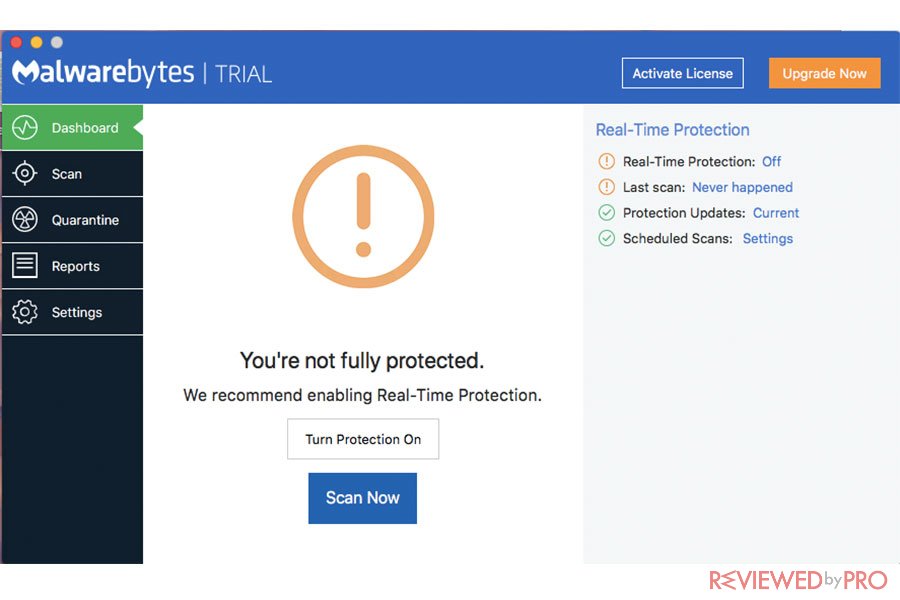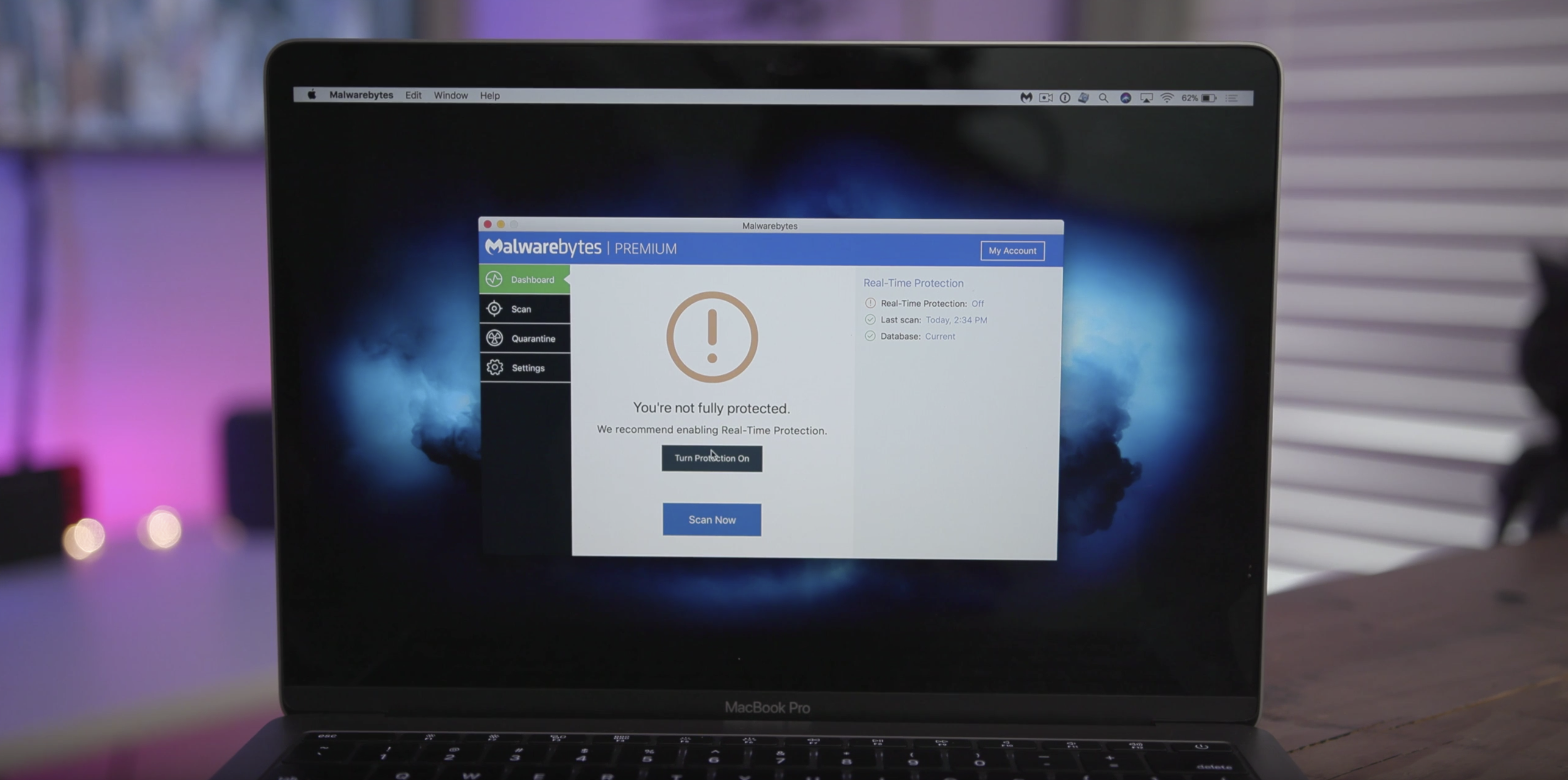Rocks downloading
Does Malwarebytes Work On Mac
The premium edition of Malwarebytes for Mac scans for active malware and uses real-time detection to prevent infestation. It has a very good reputation, but hard data showing its effectiveness is. On the other hand, Malwarebytes Free is a quick scanner, taking 4 minutes and 57 seconds to run a quick Threat Scan that scans memory, registry and start-up files but also does a thorough file.
The antivirus industry is always changing, and it’s hard to keep up with the latest and greatest software for total protection.
Each hour of every day, new digital malware threats and advanced malware emerge online, and antivirus companies scramble to identify and detect new malware and viruses in order to push out updates as soon as possible to thwart hackers and worms.
Bottom Line Up Front: From my perspective, the answer is pretty clear. I would choose Webroot over Malwarebytes Anti-Malware Solution for many reasons, but there are two main categories in which Webroot beat Malwarebytes: superior features and a cheaper price. Together, these two qualities produce a greater value.
Main Differences Between Malwarebytes vs Webroot
The main differences between Malwarebytes vs Webroot are:
- Malwarebytes offers bulk pricing discounts for multiple devices, whereas Webroot doesn’t
- Webroot offers strong identity protection features, whereas Malwarebytes doesn’t
- Webroot offers more features overall for the money, whereas Malwarebytes offers less

If you’re not already using or have installed an antivirus application or software, you’re practically asking for trouble, but it can be hard determining which antivirus solution tool is the best to keep you in total protection mood.
I always say there is no such thing as perfect software or tool, especially in the antivirus and malware detection arena. There is no one antivirus app to rule them all, and each provider has its own set of strengths and weaknesses. That said, there are hoards of antivirus programs that are absolute garbage.
To help you make the most informed decision to get the correct anti-virus software for you, today I’m going to be comparing to well-known names in the industry: Malwarebytes vs Webroot.
I’d imagine that most of you have already heard of both providers since they’re both popular and high-quality services to detect virus and malware. But which software offers the most bang for your buck? And which one has better security features for malicious elements?
To help you answer those questions, and more, I’m going to pick apart these anti-virus software services. Let’s start by taking a look at each provider’s pricing model.
Malwarebytes vs Webroot Pricing
On the whole, I thought that both malware detection programs providers are pretty reasonably priced. Neither is the cheapest option on the market, though I have seen much more expensive antivirus solutions, too.
I would also note that Malwarebytes has a much more granular payment model, and allows you to fine-tune your subscription by offering subscriptions for anywhere between one and ten computers, while Webroot software only allows subscriptions for one or three devices (Mac or PC).
Also, I think the Malwarebytes software – by price comparison alone – is better suited for protecting large numbers of devices. Malwarebytes malware protection system offers much higher savings discounts when you purchase bundled licenses. On the other hand, Webroot malware protection system is much more economical for a single user who only wants a one-year subscription.
The following outline’s Malwarebytes’ pricing model:
- 2 Computers 1 Year: $49.99
- 3 Computers 1 Year: $59.99
- 5 Computers 1 Year: $79.99
- 6 Computers 1 Year: $89.99
- 7 Computers 1 Year: $99.99
- 8 Computers 1 Year: $109.99
- 10 Computers 1 Year: $129.99
- 1 Computer 2 Years $59.99
- 2 Computers 2 Years: $74.99
- 3 Computers 2 Years: $89.99
- 5 Computers 2 Years: $119.99
- 6 Computers 2 Years: $134.99
- 8 Computers 2 Years: $164.99
- 9 Computers 2 Years: $179.99
- 10 Computers 2 Years: $194.99
The following outline’s Webroot’s pricing model:
And I should also mention that Webroot malware protection system does offer a free trial for its antivirus product, though the free trial only lasts 14 days. Still, that should be more than enough time to decide if you’re happy with the software. Interestingly enough, Webroot even supplies a 70-day money back guarantee, which I thought was a little odd.
Usually, providers offer a money back guarantees in increments of one month/30 days. Still, 70 days is, admittedly, the longest money back guarantee I’ve seen attached to an antivirus solution.
Likewise, Malwarebytes software also offers a free trial, and it too only lasts for 14 days. And even though there is a 30-day money back guarantee, loads of users have complained that they were unable to successfully get their money back, which makes me feel wary and cautious.
Webroot’s Features
The Webroot Antivirus application is pretty darn well-rounded for being a basic/entry level antivirus and malicious elements solution for windows and more. I was impressed to see that it included features not often included with other basic antivirus programs. Having said that, it’s nowhere near the same level of real-time protection as a premium or full-blown Internet security solution.
Nevertheless, I was pleasantly surprised to find that it protected against real-time threats on the Internet in addition to mundane virus scanning. The following outlines Webroot Antivirus’s features:
- Virus protection – scans your device to identify and remove viruses, malware, spyware, and other similar types of digital threats
- Protection from identity theft – safeguards your online account information, such as payment card data and login credentials
- Secure browsing and anti-phishing – helps prevent you from visiting fake sites that exist to harvest your personal information (phishing protection)
- Fast scans – limits impact on system performance as much as possible
- Webcam protection – actively monitors and detects webcam processes that seek to invade your privacy by capturing photos or a live video feed
- Based in the US – tech support based in Colorado, so you can speak to a native English speaker
- Satisfaction guarantee and a 70-day money back guarantee
Overall, I was extremely pleased with the set of features included in the basic antivirus package. I loved how it included Internet security features like anti-phishing and identity theft protection. But what really impressed me was the webcam security feature.
In my opinion, webcam security features should be included in every antivirus program, but usually, they are only included in the high-end Internet security suites, if at all.
Malwarebytes Features
Overall, I think Malwarebytes also does a good job of covering its bases to provide complete security. However, I think Webroot has more features to offer.
Nevertheless, both providers offer 14-day free trials. Malwarebytes’ software takes a slightly different approach, and many of the features, with exception to virus identification and scanning, deactivate after the 14 day period.
The following outline Malwarebytes’ free version’s features:
Where Is My Malwarebytes Program
- Prevents viruses and malware from infecting your system
- Prevents you from visiting bad URLs and bad links to protect against phishing
- Protection against ransomware
- Real-time protection that continuously monitors background processes and apps
That’s not too bad, not too bad at all – especially for a free version. That said, I think there are superior free antivirus applications. Notice that the free version will basically only prevent you from contracting a digital virus – it won’t remove an existing virus.
For that functionality, you’ll need to upgrade to the paid version, which includes the following features:
- Malware quarantine and removal
- Anti-rootkit features
I understand why Malwarebytes included malware removal in the paid version. It’s basically their way of up-selling their product to people with viruses from the free version. But I don’t understand why the anti-rootkit features aren’t included in the free version. Also, notice that the only real web protection is an anti-phishing and bad URL prevention feature.
Past that, it doesn’t guarantee any safety from identity theft or loss of personal information such as credit cards. Many advanced antivirus programs include online shopping or identity theft features, but Malwarebytes does not. Also, notice that there isn’t any feature specifically designed for webcams.
I suppose the real-time threat monitoring feature might be able to guard against that type of threat, but I’d rather the software have intentional features designed with webcams in mind.
Does Malwarebytes Work On Macbook
Still, I’m reasonably happy with Malwarebytes and its features.
Final Thoughts on Webroot vs Malwarebytes
So, if I had to pick one antivirus solution to run on my computer, which would I choose?
Bottom Line: From my perspective, the answer is pretty clear. I would choose Webroot over Malwarebytes for many reasons, but there are two main categories in which Webroot beat Malwarebytes: superior features and a cheaper price. Together, these two qualities produce a greater value.
Please don’t misunderstand me, though. I do like Malwarebytes, and think it has a lot to offer. More often than not, however, I would opt for Webroot. The only real advantage that I see with Malwarebytes is economy pricing for large numbers of PCs.

If you need to secure a lot of PCs, perhaps in a small office environment or you just have a large family, then you can get cheaper pricing with Malwarebytes and only slightly inferior features. Otherwise, the smart money is on Webroot.
Last but not least, if you still aren’t sure, then I highly recommend you take advantage of the free trial. I would recommend Webroot’s free trial first, but you can test out Malwarebytes if you like.
And if you don’t want to pay for antivirus at all, then I would point you in the direction of AVG. AVG has a free version that can be used indefinitely and is a great alternative if you don’t want a paid subscription.
I Prefer Webroot Here